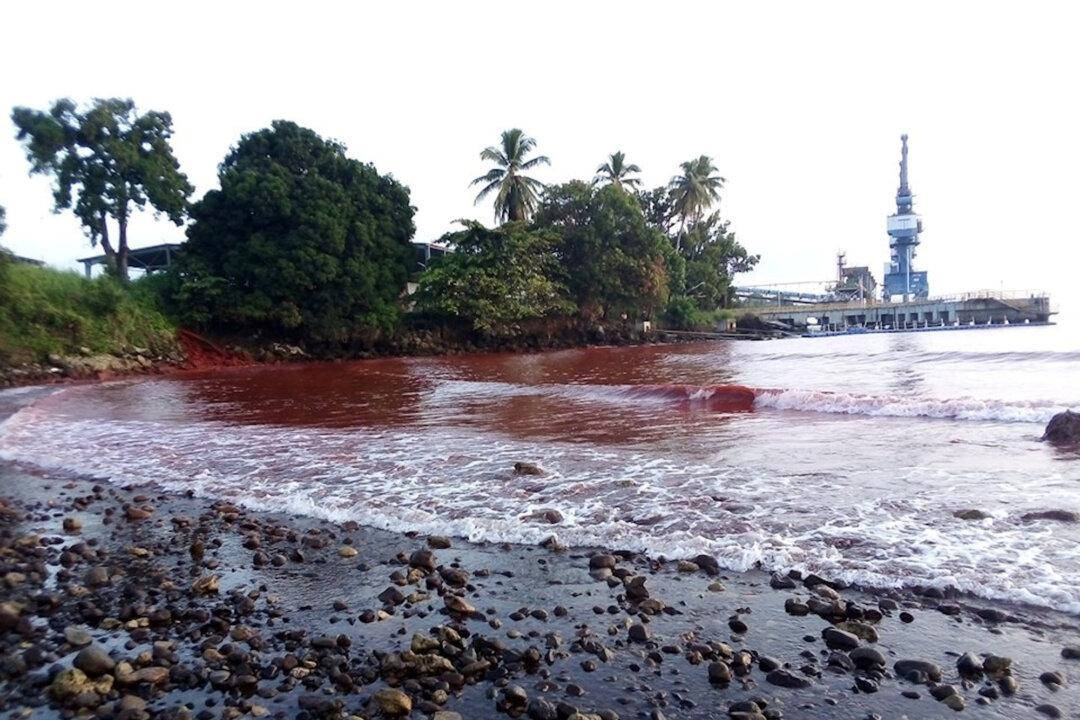MELBOURNE/BEIJING—Waste from a nickel plant in Papua New Guinea owned by Metallurgical Corporation of China spilled into the adjacent Basamuk Bay over the weekend, three sources told Reuters on Aug. 28.
Locals noticed red discharge clouding parts of the bay that is next to the Ramu Nickel plant in Madang, Papua New Guinea, a local indigenous person who took photographs of the spillage told Reuters. The man declined to be identified because of the topic’s sensitivity.





